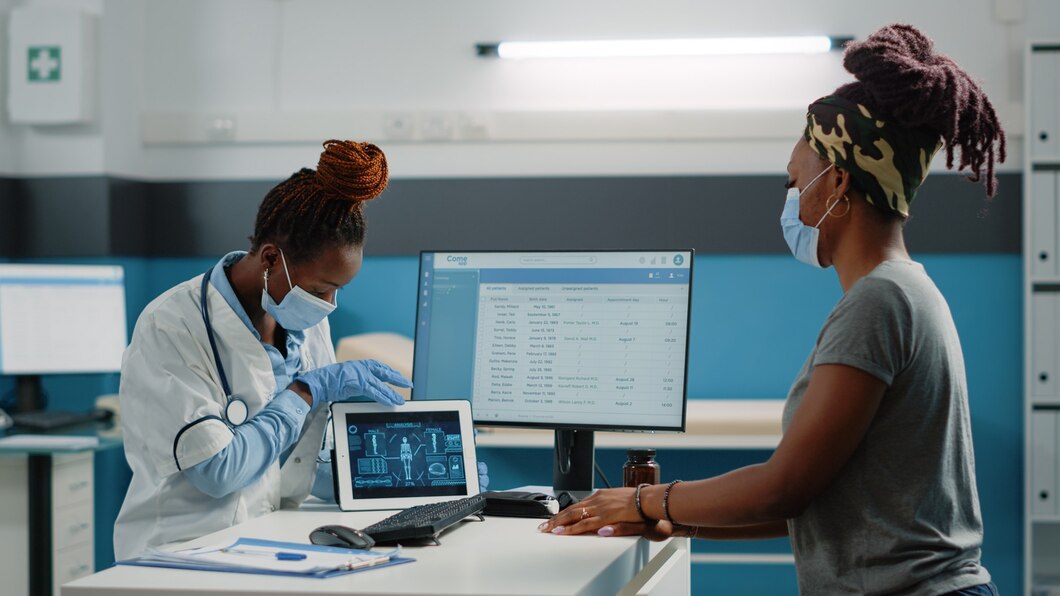A robust and accessible healthcare system is vital for the well-being and prosperity of a nation. In Namibia, efforts to improve the healthcare system are crucial for enhancing the quality of care and ensuring better health outcomes for all citizens. In this blog, we will explore actionable steps and approaches to foster positive change and improve the healthcare system in Namibia.
Strengthen Primary Healthcare:
Investing in primary healthcare is essential for promoting preventive care, early detection of diseases, and timely interventions. Expand the availability and accessibility of primary healthcare facilities, particularly in rural and underserved areas. Equip these facilities with trained healthcare professionals, essential medications, and diagnostic capabilities.
Enhance Healthcare Infrastructure:
Upgrade and expand healthcare infrastructure, including hospitals, clinics, and medical facilities. Improve the availability of medical equipment, supplies, and technology. Build new healthcare facilities in underserved areas and ensure that existing ones are properly maintained and adequately staffed.
Improve Healthcare Workforce:
Address the shortage of healthcare professionals by increasing the number of medical schools, nursing programs, and allied health training institutions. Provide scholarships and incentives to attract and retain healthcare workers, particularly in remote areas. Offer ongoing professional development opportunities to enhance the skills and knowledge of healthcare professionals.
Strengthen Health Information Systems:
Implement robust health information systems to efficiently collect, manage, and analyze health data. This data can inform evidence-based decision-making, resource allocation, and health policy development. Use digital health technologies to streamline data collection, improve patient record management, and enhance information sharing among healthcare providers.
Enhance Access to Medications:
Ensure the availability and affordability of essential medications. Strengthen the pharmaceutical supply chain to prevent stockouts and improve distribution systems. Negotiate favorable pricing agreements with pharmaceutical companies to lower the cost of medications. Encourage the use of generic medications to increase affordability.
Foster Public-Private Partnerships:
Promote collaboration between the public and private sectors to leverage resources and expertise. Encourage private sector involvement in healthcare service provision, infrastructure development, and technology innovation. Foster partnerships that focus on improving healthcare access, quality, and affordability while maintaining accountability and transparency.
Promote Health Education and Awareness:
Invest in health education programs to promote disease prevention, healthy lifestyles, and self-care practices. Raise awareness about prevalent health issues and the importance of early detection and treatment. Educate the population about nutrition, hygiene, sexual and reproductive health, and the management of chronic diseases.
Expand Health Insurance Coverage:
Work towards achieving universal health coverage by expanding health insurance schemes. Develop affordable and comprehensive health insurance options for individuals and families. Explore innovative financing models to ensure that healthcare services are accessible and affordable for all segments of the population.
Embrace Telemedicine and Digital Health:
Harness the power of telemedicine and digital health technologies to expand access to healthcare services, particularly in remote and underserved areas. Implement telehealth platforms, mobile health applications, and remote monitoring systems to provide virtual consultations, health advice, and remote patient monitoring.
Continuous Evaluation and Improvement:
Regularly evaluate the healthcare system’s performance, quality of care, and patient satisfaction. Use feedback from patients, healthcare providers, and stakeholders to identify areas for improvement. Implement evidence-based practices and quality improvement initiatives to enhance the efficiency and effectiveness of healthcare delivery.
Improving the healthcare system in Namibia requires a comprehensive and multi-dimensional approach. By strengthening primary healthcare, enhancing healthcare infrastructure, investing in the healthcare workforce, and leveraging technology and partnerships, Namibia can make significant strides towards a more accessible and effective healthcare system. Let us work together to prioritize the health and well-being of all Namibians, ensuring that quality healthcare is available to every individual, regardless of their location or socioeconomic background.
